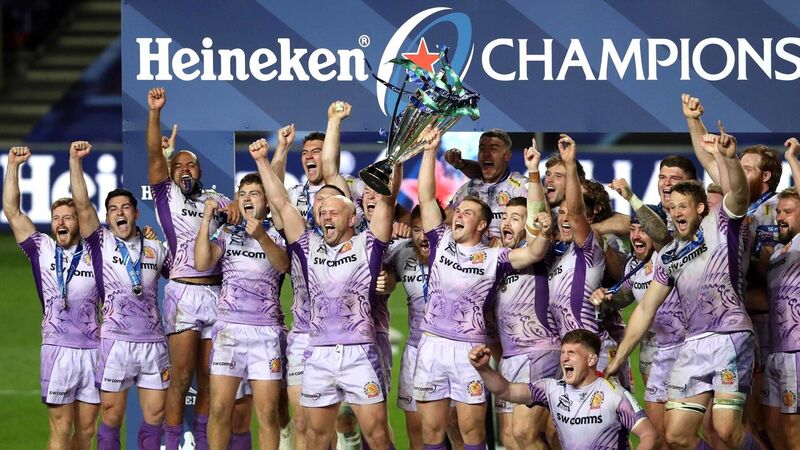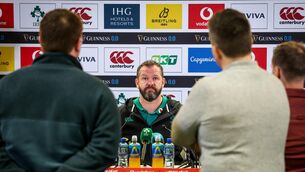Peter Jackson: Exeter Chiefs, the Leicester City of rugby, revitalised Champions Cup

Exeter Chiefs celebrate with the trophy after the European Champions Cup Final at Ashton Gate, Bristol.
Over the last 10 years pre-Covid, three clubs monopolised the Heineken Champions’ Cup: Leinster, Saracens, Toulon. From 2009 until the pandemic stopped the world in its tracks last winter, the Holy Trinity won all 10 finals, Leinster’s quartet putting them one up on their Anglo-French challengers.
Just when neutrals the world over began to wonder whether the game in Europe had become too narrow and too predictable for its own good, an outsider from a self-styled reservation in the far West of England dared to bust the cartel asunder.










